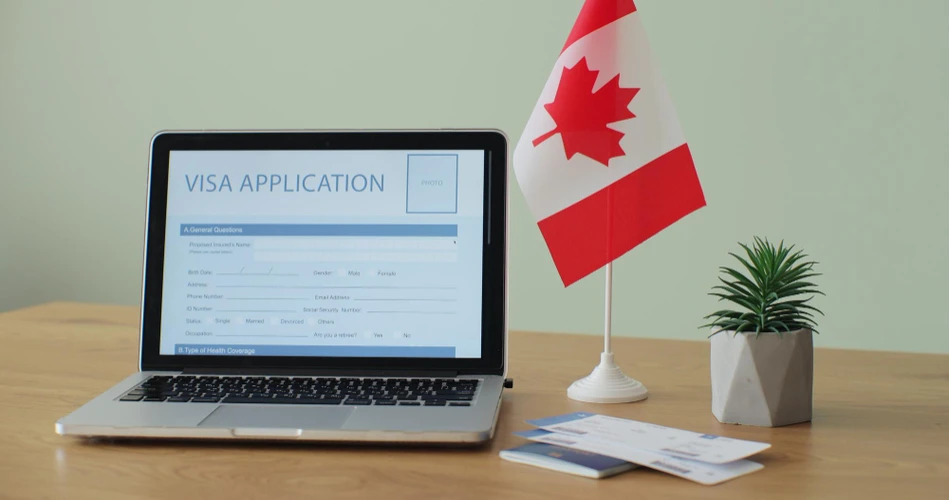
Canada has become one of the most popular study destinations for International students. During the past ten years, there has been a significant surge in the number of Indian students migrating to study and work in Canada. The recent revisions to the immigration policies and the introduction of new rules for Canada study visas have caused uncertainty and confusion among international students aspiring to study in Canada. Even though the recent changes in Canada study visa requirements may cause initial confusion, staying informed and compliant ensures a smooth path toward pursuing a world-class education in this top study-abroad destination. This article will help you get some valuable information about the recent updates in canada student visa rules.
Table of Contents
ToggleKey Highlights
For students seeking guidance, study abroad consultants play a crucial role in navigating these changes and streamlining the application process. Universal Migration helps ensure students are well-prepared and confident about their study plans in Canada, making the path to success clearer and more manageable.
The significant influx of international students over the past few years has created challenges in resources and infrastructure facilities like healthcare and housing sectors in Canada. The new rules for Canada study visas are intended to overcome these challenges. As per the Canadian government, the new rules aim to support international students and promote their overall well-being. The following are the major changes introduced in 2024
Temporary Cap on International Student Intake:
The Canadian government has implemented a two-year cap on issuing study permits for international students. There will be a reduction in international student intake, with approximately 360,000 permits expected to be issued in 2024—a 35% decrease from 2023. The allocation for 2025 will be announced later this year. Additionally, provinces and territories will have the authority to distribute study permit caps among universities and colleges within their jurisdictions.
Impact on International Students- The new regulations in Canada aim to manage the current growth of the international student population in the country while preserving opportunities for higher education in Canada. The new arrangement will help in the better allocation of resources to international students. However, these measures will not affect international students pursuing master’s or doctoral degrees in Canada, nor will they impact existing international students renewing their study permits.
Changes in Post Graduation Work Permit (PGWP) Eligibility: Previously, international students who completed Canadian study programs lasting longer than eight months were eligible for Post Graduation Work Permit. However, under new regulations, international students enrolled in study programs offered by public-private partnership (PPP) institutions as part of curriculum licensing agreements will no longer be eligible for PGWPs upon graduation. This will be implemented from September 1, 2024.
Impact on International Students– The changes in the student eligibility criteria for PGWP ensure that the students acquire relevant skills and all necessary qualifications to compete in the Canadian job market. It also encourages higher education institutions to enhance and maintain the quality of education they offer.
Extended Post-Graduation Work Permit (PGWP): Another notable change is the extension of the post-graduation work permit (PGWP) duration to three years. In the previous scheme, the length of a postgraduation work permit was based on the length of the study program. This has adversely affected international students pursuing master’s.
Impact on International Students– The change specifically benefits graduates from master’s degree programs that are less than two years long, provided they meet all other PGWP eligibility requirements. International students pursuing master’s degrees of shorter duration will now qualify for a three-year PGWP, regardless of the duration of their academic program in Canada.
Revision in cost-of-living requirements: The new rules for canada study visa 2024 include a change in the cost-of-living requirements for international students. The government has increased the international student’s cost-of-living requirements to CAD 20,635(excluding tuition fees)from CAD 10,000. All international students applying for a Canadian study visa on or after January 1, 2024, should submit sufficient proof of financial support to meet these updated living expenses requirements.
Impact on International Students– The increase in cost-of-living requirements is to ensure that international students have ample funds to support themselves and cover various expenses during their studies in Canada.
Reforms in Spousal Open Work Permit: The new policy has imposed some restrictions on Spousal Open Work Permit in Canada. Till 2023, the spouses of international students enrolled in full-time academic programs at Canadian universities were eligible to apply for SOWP. However, according to the new regulations, only the spouses of international students pursuing master’s or doctoral-level programs or of those enrolled in professional programs like law or medicine will be eligible to apply for spousal work permits.
Impact on International Students– The spouses of international students enrolled in undergraduate level degrees or other college programs will no longer be eligible to apply for Canadian spousal open work permit. The new rule regarding the SOWP will apply to all applications submitted after March 19, 2024.
As per 2023 data, Ontario hosts more than half of all international students in the country. India and China still make up a significant portion (just over half) of international students in Canada. But, there’s a growing trend of diversification with an increase in international students hailing from African countries. The new rules for canada study visa 2024, may change this trend. According to Immigration, Refugees and Citizenship Canada, the approximate number of international students in Canada during the past five years is given below:
Year | Number of International Students |
2019 | 637,780 |
2020 | 527,195 |
2021 | 616,585 |
2022 | 804,370 |
2023 | 1,040,985 |
The introduction of a new policy for international students in Canada has left students with a major question- “Is Canada rejecting student visa 2024?” But the answer is No! Even though there are some new changes in Canada student visa rules, the government still welcomes international students but with newer requirements and updated guidelines to enhance the overall experience of studying in Canada.
Canadian government accepts student visa applications that satisfy the pre-defined criteria and are submitted with all necessary documents. It may take around three months to get a study permit after applying. You can either apply online or submit an application through the Canadian visa application center in your country. The procedure may vary depending on the Provinces you prefer to study. For instance, students planning to study in Quebec will need to secure a Quebec Acceptance Certificate (CAQ) before applying for a study permit. Generally, candidates will need to submit the following documents along with the application for a Canada study permit:
For those exploring Affordable Study Abroad Programs in Canada, consulting with experienced advisors can help students discover budget-friendly options while ensuring all visa requirements are met. This guidance can make the process more efficient and cost-effective for international students.
Navigating the Canada new rules for international students can be challenging, but following these tips will help you stay on track:
In response to Canada’s latest update for international students and Canada new rules for student visa, many prospective students have proactively adjusted their plans and preparations. This case study delves into real-life experiences of students who have successfully navigated the changes. By staying informed through official channels and consulting with immigration experts, these students have ensured their applications align with updated eligibility criteria and documentation requirements. They have also embraced financial planning strategies to meet the increased cost-of-living expectations, crucial under the new rules. Through perseverance and strategic decision-making, these students exemplify resilience in the face of evolving immigration policies, paving the way for others to follow suit.
There are various pathways for international students to apply for Permanent Residency in Canada. After completing your studies in Canada, you may qualify for a Post-Graduation Work Permit (PGWP), which allows you to gain Canadian work experience—an important step toward PR. Programs like the Canadian Experience Class (CEC) under the Express Entry system prioritize candidates with Canadian work experience, making the transition from student to permanent resident smoother. Additionally, provinces offer various Provincial Nominee Programs (PNPs) that target international graduates, offering faster routes to PR. Staying informed about these pathways can significantly impact your long-term plans in Canada.
You might have been familiar with the new Canada study visa rules and their impact on international students.The eligibility criteria and requirements to study in Canada may vary from time to time. Therefore, it is important to always stay updated about the changes in immigration policy. Canada student visa rules may change due to various political and social factors. Be well-informed about the latest changes and check whether the government has introduced any new rules for Canada Study Visa. Always rely on official sites or credible resources to gather information about studying abroad in Canada. Students can also get assistance from reliable overseas education consultants in Kerala for all updates about student visa rules and application procedures.

We are officially recognised specialists in issuing all types of visas around the world.
© 2024 Universal Migration. All rights reserved. Privacy Policy | Terms of Service.